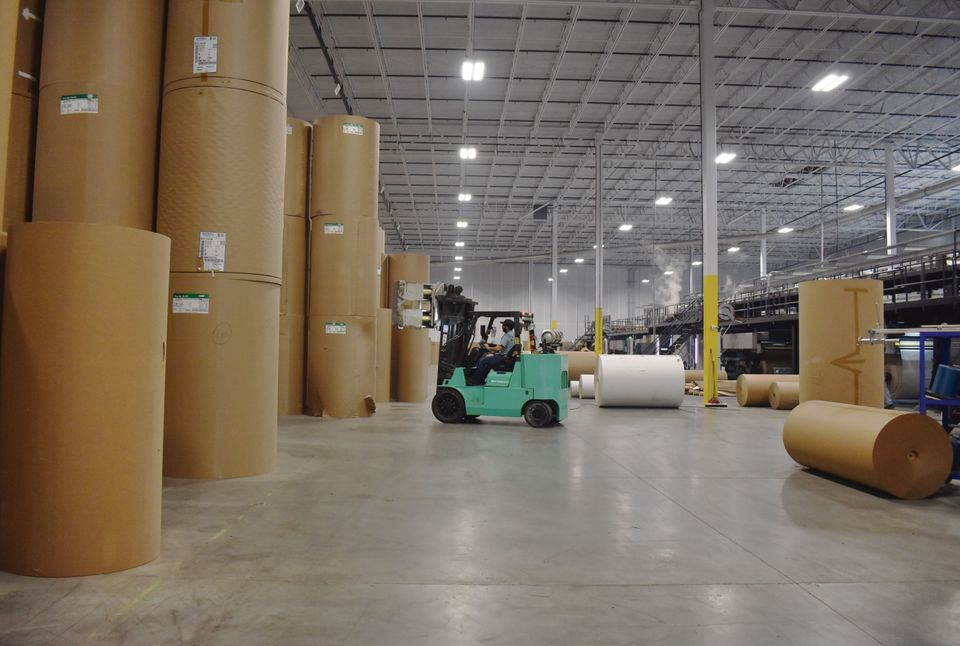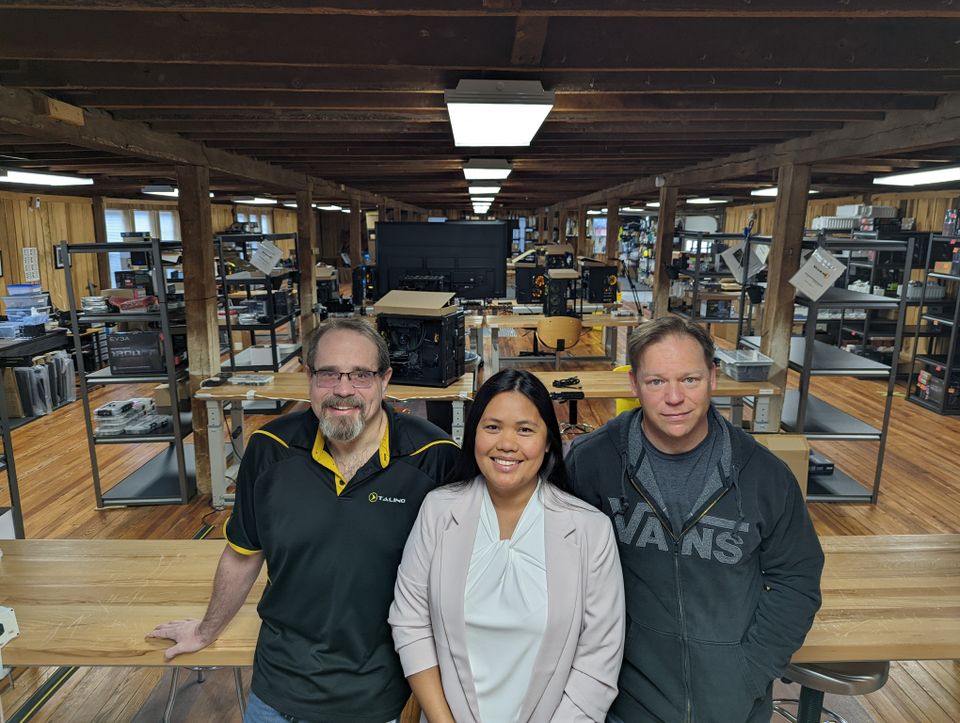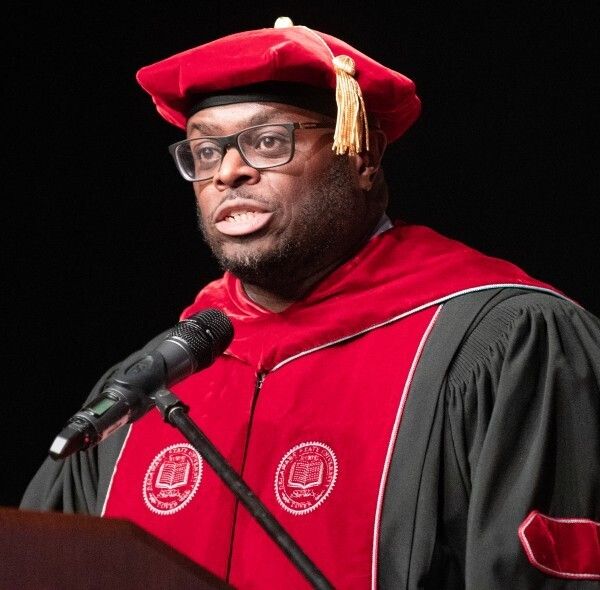
Grants and incentives helped bring company to Dover
By Laura Walter
When investors are deciding where to build an $80 million factory, they do their homework. Delmarva Corrugated Packaging opened in Dover as the result of another factory closing in New Jersey.
“A few years back, we were looking for a mid-Atlantic facility … and Dover became pretty competitive,” said Andreas Akaras, the company’s counsel for economic initiatives and special projects.
“We found a receptive environment, and we’re happy about that … We’re confident that this is a good business environment, location-wise,” Akaras said. “I will say, from the governor’s office, on down, these people were doing their job. It wasn’t like they were trying to sell the farm … but they were letting you know ‘we’re receptive to business.’ When you called, you got a call back, and when you got an idea, they were receptive.”
Leaders at Kent Economic Partnership and Delaware Prosperity Partnership listened to what the company wanted from a site, and they immediately created a shortlist of possibilities, even inviting the company to reconsider regions they initially bypassed.
“This site checked all the boxes,” President/COO Jeff Coleman said of the massive facility.
“It had to be able to support up to 500,000 square feet of manufacturing. Presently we have 457,000. However, we have sufficient acreage where we could build another 110,000 square feet. Second, the Opportunity Zone was attractive because of tax solutions … third, the access to rail. Many of our raw materials suppliers prefer to supply by rail.” Kent County has leaned hard onto its railroad for shipping.
Meanwhile, Delmarva Corrugated is eligible for up to several million dollars in tax incentives and grants.
Throughout its consideration and decision-making processes, the company had been working closely with the City of Dover, the State of Delaware, the Kent Economic Partnership, the Delaware Prosperity Partnership, Delmarva Central Railroad and many other community partners.
The Federal Opportunity Zone is meant to spur development in particular areas, allowing investors to delay or reduce paying capital gains taxes on other investment income.
State Council for Development Finance offered up to $3.1 million in incentives to the project.
“We have to fulfill x amount of jobs plus spend x amount of money, and if we show the receipts, then we can get a percentage back and immediately use it as working capital and accelerate the hiring process,” Akaras said. “It’s not that it makes this project cheaper … it makes it more liquid on paper. The government accelerates our opportunity … and they still get the taxes back.”
The company still paid plenty of impact fees, including helping fund the new traffic signal at their plant entrance. The company was also eligible for a $600,000 grant from the Delaware Transportation Infrastructure Investment Fund.
Both Dover and Kent County offered tax programs that allow the company to pay a fraction of its property tax bill each year, until it’s paying the full 100 percent by Year 10 and onward.
Delmarva Corrugated hasn’t taken advantage of it yet, but businesses with a certain energy efficiency can be eligible for financial support. Akaras described the insulated concrete walls that help control temperature; skylights that add natural brightness; and the recycled material that goes into the cardboard itself.
Regional assistance has gone “well beyond the economic initiatives. It’s just coaching us, as the new kid on the block, they’ve been great. The City of Dover’s been fantastic, in terms of the permitting process. We had to meet requirements, but the methodology they had for coaching us was really good,” Coleman said. “I recognize that being the shiny new toy in town,” perhaps DCP got a particularly high amount of attention, but the guidance has been invaluable.
There is one challenge that everyone faces: “Every other business is struggling to hire employees. I would suggest Delaware and Dover go on a campaign for people to move here.” The home prices are affordable, with beaches and cities in either direction. “With the cost of living, [people] would be doing well. It’s just getting the word out … with the salaries they would get in a manufacturing environment (like ours) and the cost of living … that’s what I would emphasize for the State to work on.”
When investors are deciding where to build an $80 million factory, they do their homework. Delmarva Corrugated Packaging opened in Dover as the result of another factory closing in New Jersey.
“A few years back, we were looking for a mid-Atlantic facility … and Dover became pretty competitive,” said Andreas Akaras, the company’s counsel for economic initiatives and special projects.
“We found a receptive environment, and we’re happy about that … We’re confident that this is a good business environment, location-wise,” Akaras said. “I will say, from the governor’s office, on down, these people were doing their job. It wasn’t like they were trying to sell the farm … but they were letting you know ‘we’re receptive to business.’ When you called, you got a call back, and when you got an idea, they were receptive.”
Leaders at Kent Economic Partnership and Delaware Prosperity Partnership listened to what the company wanted from a site, and they immediately created a shortlist of possibilities, even inviting the company to reconsider regions they initially bypassed.
“This site checked all the boxes,” President/COO Jeff Coleman said of the massive facility.
“It had to be able to support up to 500,000 square feet of manufacturing. Presently we have 457,000. However, we have sufficient acreage where we could build another 110,000 square feet. Second, the Opportunity Zone was attractive because of tax solutions … third, the access to rail. Many of our raw materials suppliers prefer to supply by rail.” Kent County has leaned hard onto its railroad for shipping.
Meanwhile, Delmarva Corrugated is eligible for up to several million dollars in tax incentives and grants.
Throughout its consideration and decision-making processes, the company had been working closely with the City of Dover, the State of Delaware, the Kent Economic Partnership, the Delaware Prosperity Partnership, Delmarva Central Railroad and many other community partners.
The Federal Opportunity Zone is meant to spur development in particular areas, allowing investors to delay or reduce paying capital gains taxes on other investment income.
State Council for Development Finance offered up to $3.1 million in incentives to the project.
“We have to fulfill x amount of jobs plus spend x amount of money, and if we show the receipts, then we can get a percentage back and immediately use it as working capital and accelerate the hiring process,” Akaras said. “It’s not that it makes this project cheaper … it makes it more liquid on paper. The government accelerates our opportunity … and they still get the taxes back.”
The company still paid plenty of impact fees, including helping fund the new traffic signal at their plant entrance. The company was also eligible for a $600,000 grant from the Delaware Transportation Infrastructure Investment Fund.
Both Dover and Kent County offered tax programs that allow the company to pay a fraction of its property tax bill each year, until it’s paying the full 100 percent by Year 10 and onward.
Delmarva Corrugated hasn’t taken advantage of it yet, but businesses with a certain energy efficiency can be eligible for financial support. Akaras described the insulated concrete walls that help control temperature; skylights that add natural brightness; and the recycled material that goes into the cardboard itself.
Regional assistance has gone “well beyond the economic initiatives. It’s just coaching us, as the new kid on the block, they’ve been great. The City of Dover’s been fantastic, in terms of the permitting process. We had to meet requirements, but the methodology they had for coaching us was really good,” Coleman said. “I recognize that being the shiny new toy in town,” perhaps DCP got a particularly high amount of attention, but the guidance has been invaluable.
There is one challenge that everyone faces: “Every other business is struggling to hire employees. I would suggest Delaware and Dover go on a campaign for people to move here.” The home prices are affordable, with beaches and cities in either direction. “With the cost of living, [people] would be doing well. It’s just getting the word out … with the salaries they would get in a manufacturing environment (like ours) and the cost of living … that’s what I would emphasize for the State to work on.”



